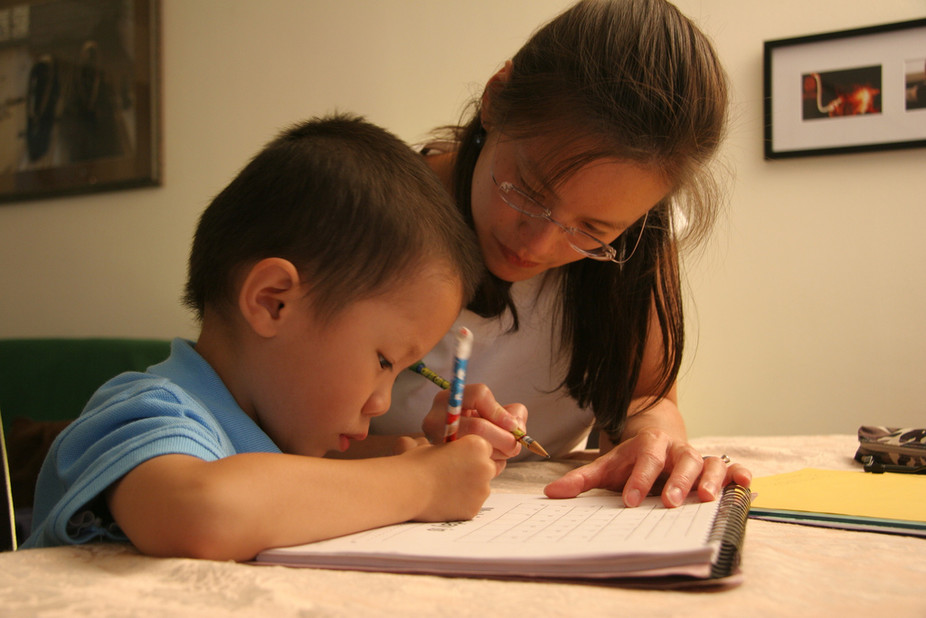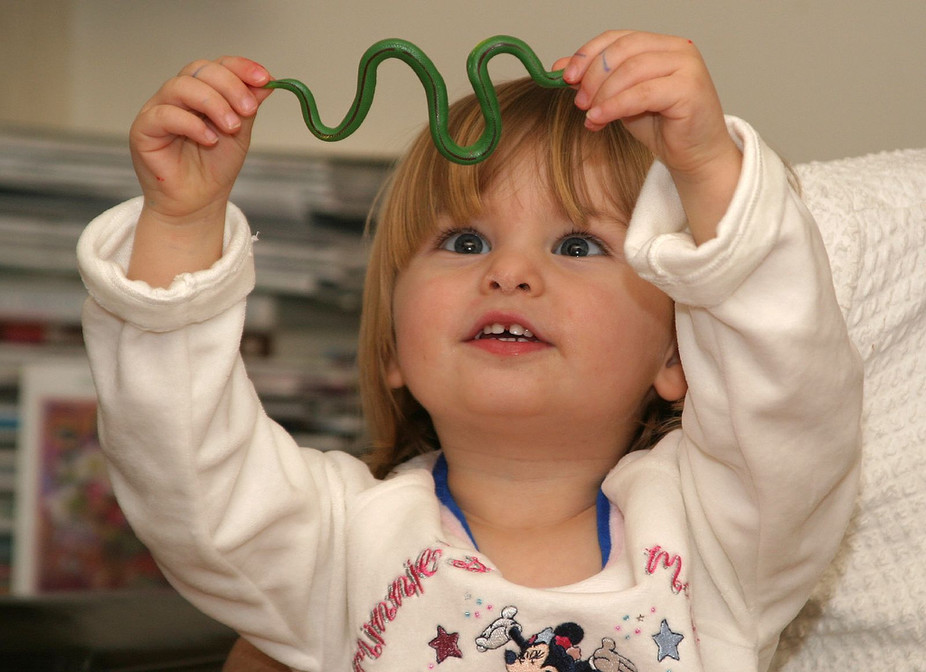Paul Morgan, Pennsylvania State University Globally, the U.S. is at risk of declining economic competitiveness due to its continuing lower levels of educational attainment in science, technology, engineering, and mathematics (STEM). The U.S. currently ranks 44th according to the quality of its mathematics and science education. A “leaky STEM pipeline” – in which factors such as lower expectations, discrimination, and a lack of interest make it less likely that racial or ethnic minorities, women or those from low-income families will pursue STEM careers – makes many adults less likely to be employed in these types of positions. Yet STEM positions …
When do children develop their gender identity?
Vanessa LoBue, Rutgers University Newark Gender is generally thought of as a stable trait: we are born male or female and we stay that way as we grow from small children to adults. It turns out that for young children, initial concepts about gender are quite flexible. In my own research, I’ve found that children don’t begin to notice and adopt gender-stereotyped behaviors (e.g., preferring colors like pink or blue) until the age of two or three. A few years later, their concept of gender becomes quite rigid, and although it becomes more relaxed by middle childhood, even adults have …
Continue reading “When do children develop their gender identity?”
Will guns on campus lead to grade inflation?
Jessica Smartt Gullion, Texas Woman’s University Editor’s note: This is an updated version of an article first published on April 27, 2015 Texas college professors may soon face a dilemma between upholding professional ethics and protecting their lives. On Thursday, December 10, a task force at the University of Texas at Austin recommended restricting guns in residence halls, at sporting events and in certain laboratories, but allowed them in classrooms. The 19-member task force was set up following a “Campus Carry” law passed by the state in Spring 2015. The law, which will come into effect on August 1, 2016, …
Continue reading “Will guns on campus lead to grade inflation?”
Here’s how witnessing violence harms children’s mental health
Daniel J. Flannery, Case Western Reserve University and Mark I. Singer, Case Western Reserve University Caroline was having a hard time getting her daughter to go to school. The night before, her daughter saw the news about a terrorist bombing that had occurred that day where several children and adults were killed and schools were immediately closed. Her daughter had a difficult time sleeping and was refusing to eat her breakfast. When Caroline asked her daughter what was wrong, she replied in a hushed tone, I’m scared mommy. If I go to school, will somebody come in and shoot me? …
Continue reading “Here’s how witnessing violence harms children’s mental health”
Explainer: What do child prodigies have in common with kids with autism?
Joanne Ruthsatz, The Ohio State University As a toddler growing up in the 1950s, Richard Wawro threw violent tantrums. Often, he would tap the same piano key for long stretches of time. When he was three, his parents took him for testing at a nearby hospital. They were told that he was moderately to severely retarded. His family, however, never believed that his IQ was as low as the experts claimed. A special education teacher began working with Richard when he was six. She introduced him to drawing with crayons, which he took to quickly. He began filling sketchbooks (and …
Continue reading “Explainer: What do child prodigies have in common with kids with autism?”
Creative Ways to Close the Achievement Gap
I have researched the achievement gap for over 9 years. This is what I have learned. Our political leaders have finally begun to recognize the importance of education to the survival of individuals and societies in the 21st century. The other aspect of this conversation is all too familiar: while our children do learn, not all of them are learning as much or as well as they should to meet the demands of the new century. In the United States, there are low levels of achievement among students from low-income backgrounds and students of color. This is in contrast to …
Continue reading “Creative Ways to Close the Achievement Gap”
When do children learn to write? Earlier than you might think
Rebecca Treiman, Washington University in St Louis and Lori Markson, Washington University in St Louis We typically think of writing as something that is out of reach for preschool children. After all, young children can’t write recognizable letters, and they can’t spell words. We have been studying young children’s knowledge about writing in our research. And we are finding that they know more about writing – even before they learn to read – than one might think. Writing is smaller than drawing Consider this production by a two-and-a-half-year-old American child, Sophia: Sophia’s drawing. WUSTL Photo / Courtesy of Rebecca Treiman, …
Continue reading “When do children learn to write? Earlier than you might think”
Stressed out: the psychological effects of tests on primary school children
Laura Nicholson, Edge Hill University Some parents are so angry with the testing regime facing their children that they have come together in an attempt to boycott primary school exams. Preparation by teachers for these standardised achievement tests (SATs) in England have involved a narrowing of the curriculum, including a specific focus on spelling, punctuation and grammar. Parents believe that their children should be stimulated instead by more enriching activities and projects. There is also a worry that the tests may cause undue stress and pressure on their young children to perform well. These beliefs are widespread: more than 49,000 …
Continue reading “Stressed out: the psychological effects of tests on primary school children”
How do children learn to detect snakes, spiders and other dangerous things?
Vanessa LoBue, Rutgers University Newark As summer approaches, children will be spending less time in the classroom and more time navigating the outside world. Outdoor activities are a fun and exciting part of summertime, but they can also filled with natural (and unnatural) dangers, like fast-moving cars, steep cliffs, crashing waves and even the occasional bear. Despite these daily hazards, most kids make it to the end of the day unscathed, other than the occasional scraped knee. Research shows children have an ability to detect threat quickly. How are perceptions of what’s safe and what’s threatening in the outside world …
Continue reading “How do children learn to detect snakes, spiders and other dangerous things?”
Why schools should provide one laptop per child
Binbin Zheng, Michigan State University and Mark Warschauer, University of California, Irvine A recent international study by the Organization for Economic Cooperation and Development found no positive evidence of impact of educational technology on student performance. It did not find any significant improvement in reading, math or science in countries that heavily invested in technology to improve student achievement. In fact, the report found that technology perhaps even widened the achievement gaps. Does this mean we should abandon attempts to integrate technology in schools? We are researchers of technology and learning in K-12 environments, and our research suggests this would …
Continue reading “Why schools should provide one laptop per child”









